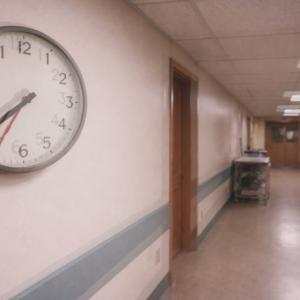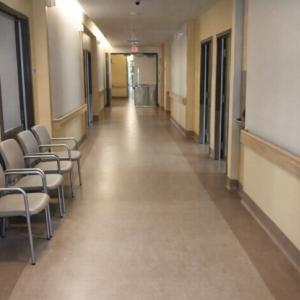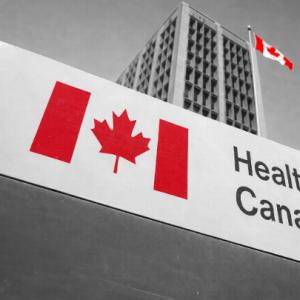Public or Private? A conversation with your future doctor
Editor’s Note: The Small Voice is a practicing pediatrician in Alberta who writes under a pseudonym out of fear of professional retaliation. Their identity and credentials have been verified by Canada Healthwatch.
—
Two-tier healthcare has officially arrived.
The Alberta government has confirmed it’s moving toward a “dual practice” system, starting with surgeries. This will let physicians work publicly and privately at the same time.
If the new model expands beyond surgery, which the government already says is possible, healthcare splits into two tracks: one where you wait, and one where you'll pay not to.
– The Small Voice
—
“Hi Dr. Chen. Thank you for squeezing us in. We’re hoping you would take on Maya’s care.”
“Of course. Have a seat. For transparency, I’m required to say that we’re having this conversation because you expressed an interest in our private-pay option. I haven’t actually received the ‘public’ referral from your GP yet.”
“Yeah… they said they would send it a month ago.”
“Sorry. I don’t know what to tell you.”
“So we came privately because we just… I couldn't wait anymore.”
“I understand. Before we get into the details, I’m required to ask whether you want Maya’s care under AHCIP or the private stream.”
“You mean it’s an option to switch this to public?”
“Possibly… But only once the public referral arrives, is triaged, and your name makes it to the top of the wait list.”
“How long is that?”
“Six to eight months. Maybe more. We're short staffed right now — I get 50 referrals a week but only enough public slots to see 25. And no guarantees you’d see me, maybe someone else at the clinic.”
“Oh my god.”
“Yep.”
“And privately?”
“You’re here. Intake today. Follow-up in two to three weeks.”
“And we pay.”
“And you pay.”
“Okay… I have to ask. Why are you doing private care now? You weren’t before.”
“Fair question. Need it to keep the lights on.”
“What does that mean?”
“My rent keeps going up. Costs doubled since COVID. And my front-desk staff, who were always ‘private’ — because the government has never paid for them — still deserve raises. Their cost of living is going up too.”
“You’re making it sound like you didn’t have a choice?”
“Not even close. If I stayed fully public, I’d be working to pay my staff and landlord, with nothing left over. Some months I’d actually lose money. That’s why lots of the family docs left. Fee codes in the public system haven’t kept up with rising costs, not even close.”
“You’re kidding.”
“I wish I were. I love pediatrics. But love doesn’t pay the bills.”
“So, private basically pays to keep the clinic running.”
“Yeah… It’s the only way at this point.”
“So if we go public, what happens?”
“You wait until your GP’s fax comes in, wait for it to be triaged, wait until space opens. Follow-ups might be a little more spaced out too.”
“And if we go private?”
“We can start today. We talk, I check her out. We make a plan. I can talk to the school. I can diagnose, treat, and support.”
“Is this covered by my insurance?”
“Don’t know — you'll have to check that with them. Some plans cover private pediatric assessments. Some don’t. Some require pre-authorization. Some classify ADHD or learning and behavioural issues as pre-existing conditions and deny claims up-front.”
“So why am I paying for insurance?”
“Oh yeah, don’t worry — they will always get their money — I think they’re charging more than I am for this anyways.”
“Perfect. Love that.”
“You asked.”
“I know. I just… I’m just worried about how much this will cost, in the end — feels like a scam to have to pay or wait... what do the people who can’t pay do?”
“I hear that every day... they wait.”
“We’re sure Maya has ADHD. She’s bright, but she’s overwhelmed. And with 38 kids in her class, the school says they can’t offer any more support than they already are. They keep calling us to come pick her up. My work is losing it.."
“I know. Parents want the schools to step up, schools want the docs to step up. Every day, same thing, over and over again.”
“She cries every morning. And every night. And sometimes in the middle of class.”
“I’m sorry. Truly.”
“So if we stay in the public system, we wait months?”
“Realistically.”
“And if we shift to public later?”
“You go to the back of the line again. And you may lose continuity.”
“Of course.”
“And if we start public and then switch private?”
“You’d still have to pay for a new intake.”
“This system hates families.”
“...Just the ones who can’t afford to pay... Oh, and the ones who have kids with neurodevelopmental disorders. I hate it, but I don’t make the rules — you still have a choice to make.”
“Okay. So we could start today privately, get assessed, make a plan, start treatment…”
“Yep.”
“...or we wait months, cross our fingers, and hope I don’t lose my job.”
“That sums it up.”
“Realistically we just can’t wait.”
“...”
“...”
“I’ll bring the forms. You’ll have to sign a consent form where you acknowledge that you are knowingly and voluntarily paying me. Then another form saying you understand you could get this done publicly. Then a third form confirming the price. And then a fourth form where I confirm I’m not ‘extra-billing’ AHCIP.”
“That’s a lot of paperwork. Do you care if we pick public or private? Is there one that’s better for you?”
“I have strong preferences as a human being and completely different preferences as a businessperson, but professionally I’m legally obligated to say I’m neutral.”
“Is anyone actually choosing the public route anymore?”
“Oh, absolutely. Some don’t have a choice.”
“So, once we sign, we’re officially your patient privately?”
“Yep. Same clinic. Same doctor. Same kid. Same care you could get under your provincial insurance you already pay for with your taxes, just… sooner. Oh, and you pay, obviously.”
“…Dr. Chen?”
“Yes?”
“You said that out loud.”
“I know. I’m required to say that under the new rules."
The Small Voice is a practicing pediatrician in Alberta who writes pseudonymously. Their identity and credentials have been verified by Canada Healthwatch.








